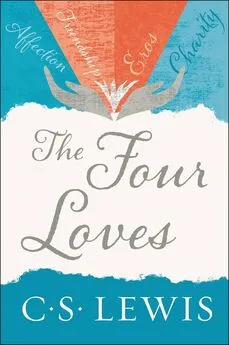Jonathan Howard - Johannes Cabal: The Fear Institute
- Название:Johannes Cabal: The Fear Institute
- Автор:
- Жанр:
- Издательство:неизвестно
- Год:неизвестен
- ISBN:нет данных
- Рейтинг:
- Избранное:Добавить в избранное
-
Отзывы:
-
Ваша оценка:
Jonathan Howard - Johannes Cabal: The Fear Institute краткое содержание
Johannes Cabal: The Fear Institute - читать онлайн бесплатно полную версию (весь текст целиком)
Интервал:
Закладка:
Once one accepted in principle that their expedition was being protected by the Crawling Chaos (one of Nyarlothotep’s many names, along with others such as the Black Pharaoh, Ahtu, the Grey Man, Loki, the Child of Eyes, the Bloated Woman, Anansi, the Dweller in Darkness, the Smiling Killer, Tezcatlipoca, and Dave in Accounts), abandoning it became problematical. Nyarlothotep might just shrug and leave them to it, or he might take offence and then revenge. Given that Nyarlothotep’s revenge would likely be biblical in scale, Dadaist in commission, and cruel enough to make de Sade wince, not offending the god seemed very sensible.
Cabal had many faults, several of which were also capital crimes, but he was in no wise indecisive. He shouldered the baldrick to which his Gladstone was attached, and started walking again. ‘Come along,’ he said. ‘I am not abandoning our quest, and therefore will not be finding a reciprocal gateway for the Silver Key. Without it, you are trapped here, Herr Corde, so I suggest you have little option but to accompany us.’
Corde was furious, but still he did not reach for his sword. ‘Don’t I have any say in the matter?’
Cabal stopped to look at him. ‘You have no say, but perhaps you do have a choice. Come or stay.’ He considered. ‘Yes, that covers all the possibilities.’ Cabal made to start walking again.
‘One day, Cabal, you will have your comeuppance.’
‘Is comeuppance some mealy-mouthed way of saying die ? One day I shall die, yes, and given my profession, it will likely be sooner than later. But it will also likely be random and stupid and pointless. It is to war against the very irreversibility of such deaths that I do what I do. In all your days as a solicitor, Herr Corde, I doubt you even once pressed the war against death with a minute of your time or an iota of your energy. In real humanitarian terms, your campaign against the Phobic Animus is the most selfless and noble thing you have ever done or will ever do. Do not miss your chance to be useful.’
If the logic convinced him, he did not nod. If the sentiments mollified him, he did not smile but, none the less, Corde followed, and the remaining 75 per cent of the Great Phobic Animus Hunt walked on.
Just over two weeks later, Corde died. It was random and stupid and pointless.
The icy atmosphere within the party had thawed a little, at least on Corde’s part. Cabal was capable of only glacial coldness and incandescent fury; convivial warmness was well beyond him except as an exercise in play-acting. They had made good progress to the Karthian Hills, and the ease of their passage via the kindness of passing caravans, both commercial and military, had given them the easiest leg of their adventures to date. They had bought supplies at cost from the rearguard baggage wagons of a column of húskarlar accompanying a king on royal progress around his lands before saying their goodbyes and climbing into the hills.
The Karthian Hills were painfully bucolic and picturesque, as if planned by John Constable. Every view was striking, every weather condition heart-stopping, the light never anything less than blooming. It was like walking through an art gallery that contained only one piece, but one that surrounded the viewer and altered from one moment to the next, from one masterpiece to the next. As is usually the way in art galleries, they soon settled into a routine of largely ignoring it, but the transcendent beauty of their surroundings could not help but have a mellowing effect on them. Even Cabal found less to be sarcastic about, and so sank into a somewhat resentful quiescence, like a dormant volcano fondly remembering its last pyroclastic flow in which it had buried several hundred people, and now rather looking forward to its next.
There were farms and orchards in the hills, and the people were friendly, refusing as often as not to take payment for the food they gave the travellers. Bose was able to shake off the recent horrors they had witnessed as easily as a young child might, and took to chattering to Corde, or to himself, or to Cabal, which was much the same as chattering to himself. Corde bore the empty conversation well, ignoring much of it, and responding briefly and thoughtfully when the subject touched upon something that interested him. They did not speak of Shadrach. He was gone, and they did not care to consider how that had happened, or the consequences in the waking world when they returned. It would indeed have been easier if only his spirit had entered the Dreamlands, for then his body would have simply died in its sleep and there would have been a coroner’s report of natural causes. Explaining a disappearance would probably turn out to be trickier.
Instead, they liked to consider what the world would be like when the Phobic Animus was finally destroyed. Strangely, despite all their preparations beforehand, they had never truly been examined the actual results of a successful expedition in anything but the vaguest terms of a ‘golden future’. Now that they applied themselves to it, they were pleased and somewhat relieved that they could perceive no deleterious ramifications. Well, almost none.
‘Nobody will care to read ghost stories again,’ said Bose, as they walked. ‘Perhaps just for reasons of literary enjoyment, but certainly not to get the shivers because no one will believe in ghosts any more.’
‘That,’ said Cabal, in one of his rare utterances, ‘would be foolish. One should be cautious of ghosts, for they certainly exist.’ He flexed his shoulder and winced slightly as he said it.
Typically, he would not expand upon the subject having dropped such a boulder into the pool of their conversation, so Corde and Bose had to content themselves with telling one another ghost stories, both ‘true’ and fictional. Cabal sniffed disdainfully during some of these tales, and not during others, by which standard they came to understand which were most likely, given their taciturn companion’s experiences. By this method, they amused themselves to the tops of the Karthian Hills.
The view from up there of the land ahead was less salubrious than that of the land behind. Off in the distance the rolling landscape grew less marked, and the colour drained from it by degrees until the verdant hills gave way to the pale brown sand dunes of the Cuppar-Nombo Desert. Nor was this shade of brown the usual golden brown of Earth’s more scenic deserts, but rather the bland light brown of cold café au lait , a tired, sad colour, too depressing even for hospital walls. All three men looked at it, and all three drew long breaths that they allowed to sigh out of them as if they were deflating. Why the founders of Golthoth had decided to build their city in such a vile environment when the beautiful Karthian Hills were so close was a mystery for the ages. Perhaps the land had been different then; perhaps the Karthian Hills had belonged to some enemy; perhaps the Golthothians really, really liked nondescript brown sand.
Whatever the case, there was a strong sense that their pleasant interlude was drawing to a close, so they settled down to have possibly their last meal without sand in it for a while. They opened their jars and unwrapped their linen parcels, made a picnic of sorts upon the grassy swathe, and chatted about this and that as they ignored the brown expanse and ate their bread, cheese and salted meat.
They had just been discussing the careers that would abruptly wither away once fear was removed (fortune-telling, several branches of insurance sales, and a large part of the Stock Exchange, the latter principally comprised of fiscal pirates on a monetary sea kept profitably choppy by groundless panic and thick-pated optimism; Cabal asked if there was an equivalent form of the Phobic Animus that encouraged such wide-eyed hopefulness, and if so, would they be hunting this cosmic Pollyanna next?), when Corde noticed that the slice of meat he had just that moment arranged upon a cob of bread was no longer there.
After some undignified glaring in all directions, his eye settled upon a young cat, barely more than a kitten, that was padding away as swiftly as it might with a large slice of stolen meat in its mouth. It withdrew to what it believed was a safe distance some twenty feet away, and started tearing morsels from its booty, all the while keeping a watchful eye upon the three men in case they couldn’t resist the desire to recover their food, grass-stained and cat-drool-coated as it was.
‘Well I never!’ said Corde, in righteous anger, but Cabal just made a soft bark of amusement in his throat, and Bose laughed out loud. Corde was suddenly aware that the only beings in that world or any of its immediate neighbours that gave a fig for the fate of his sandwich filling were himself and the cat that had stolen it. He smiled and laughed, a little forcedly, for inside he seethed with resentment at the animal.
‘What sort of cat is that?’ asked Bose, gesturing at it with a meat sandwich that Corde couldn’t help but notice was unsullied by cats. ‘What do they call those? It’s a brindle, isn’t it?’
‘Brindle,’ said Cabal, slowly, as if Bose had said something thoughtlessly hurtful, ‘is a patterning. A brindled cat is a tortoiseshell.’ He sat, watching the cat through narrowed eyes, a faint sense of disquiet growing within him. How far from Ulthar are we? he wondered.
‘Well, whatever type of cat it is,’ said Corde, with faux -joviality, ‘it’s a little rascal.’ So saying, he took up a small stone and shied it in the general direction of the cat. When Cabal saw what he was about, he started to call a warning but it was already too late.
The stone was little more than a largish piece of gravel, and it was thrown without any great force. It should have described a leisurely parabola and bounced upon the grass near the cat, probably startling it. The stone did few of these things. With the horrible inevitability of nightmare it left Corde’s hand like a bullet from a slingshot, spinning rapidly as it went, arced sideways, and hit the cat hard in the head. Even from where they sat, the harsh crack of bone was sickeningly distinct. The cat fell to one side, shaking violently in spasm. Corde leaped to his feet and ran to it, but it was already still and dead by the time he got there.
A man dressed as a great fighting general, he stood over the pathetic little form, put his hand to his mouth and gazed in horror at the blood, the exposed brain and the split eyeball. The cat looked more as if it had been shot than hit by a casually tossed stone.
‘Is it dead?’ he heard Cabal say, in clear, neutral tones behind him.
‘I didn’t mean to . . . How is that possible?’ Corde simply couldn’t take in how bizarre the sequence of events was. ‘I barely even . . . It makes no sense.’
Cabal was not interested. ‘Gather up your things immediately,’ he instructed. ‘We must be on our way before they find out.’
‘What?’ Corde looked uncomprehendingly at Cabal. ‘What are you talking about, man? Before who finds out?’
‘The cats, naturally.’ Cabal was already striding past him, heading westwards in the direction of the desert.
‘Cats, Mr Cabal?’ Bose was having difficulty in raising his voice to be heard through a mouthful of sandwich. ‘The cat’s owners, you mean?’
‘I mean what I say, and I am in deadly earnest. There are plenty of things to be rationally afraid of in the Dreamlands, and not all of them are as overt in their threat as wamps.’
Based on Cabal’s usual sang-froid, if he decided that killing a cat, even accidentally, was cause for a rapid decampment, that was sufficient motivation for Corde and Bose, who decided to hold their questions for later, quickly gathered up their belongings and headed westwards too.
Читать дальшеИнтервал:
Закладка:





